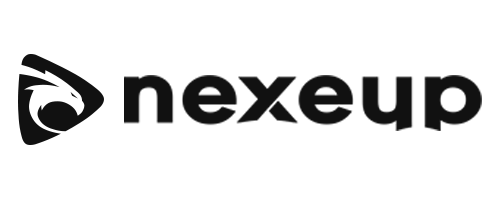Summary
- Doing thorough research on the company, including its mission, values, and leadership, can significantly enhance interview performance.
- Sharing genuine stories with a beginning, middle, and end makes candidates memorable and engaging during interviews.
Let’s be real: job interviews are a mix of nerves, hope, and that unavoidable stomach knot. And with so many candidates competing for a position, what actually makes someone stand out? It’s not just having a perfect resume or giving all the right technical answers — though that helps. Sometimes, it’s the small things, sincere attitudes, and thoughtful preparation that truly make the difference. In this article, I’ll show you 7 smart (and human) ways to genuinely stand out in an interview.
1. Do your homework like your life depends on it
You’ve heard it before: “knowledge is power.” That couldn’t be more true here. Many candidates walk into interviews knowing the basics — company name and job title. That’s not enough.
Before your interview, dig deep: understand the company’s mission, values, clients, social media, recent news, workplace culture, even who their leadership is. Get a feel for their tone. Are they more laid-back or formal? Focused on innovation or stability? That will help you naturally shape your answers without sounding like you’re trying too hard.
And trust me — when you say something like, “I saw that you supported that social project last year and thought it was amazing,” your eyes light up, and so do the recruiter’s. It shows you really want to be there.
2. Tell stories, not just answers
Interviewer: “Tell me about a challenge you faced at work.”
Candidate 1: “There was a tough situation, but I managed to solve it.”
Candidate 2: “In 2023, at my previous job, we had a client with a very specific request and a tight deadline. The team was overwhelmed, and no one wanted to take it on. I volunteered because I saw a chance to learn. I quickly built a plan, involved the right teammates, and we delivered a day early. The client signed on for another year.”
Who do you think they’ll remember?
Answering questions with real stories — with a beginning, middle, and end — shows you’ve lived the experience. Stories are engaging, memorable, and show how you think, feel, and solve problems.
3. Show real curiosity
Some people think interviews are just about answering questions. That’s a mistake. One of the biggest missed opportunities is not asking questions — or worse, only asking generic things like “what’s the salary?” right away.
When the interviewer says, “Do you have any questions?”, take that chance. But ask smart ones that show you truly care about the job and the company.
Examples:
- “How do you define success in this role after 6 months?”
- “What are the biggest challenges this team is currently facing?”
- “What’s the management style of the direct supervisor for this position?”
This shows you’re thinking long-term and assessing whether they are the right fit for you too. And that’s a green flag for them.
4. Focus on your energy, not just your words
You know when you’re talking to someone who clearly doesn’t want to be there? That flat tone, distant look, slouched posture? Yeah, that’s a red flag.
Your body language speaks louder than your resume. Sit up straight (but don’t be stiff), make eye contact, smile when it feels right, use your hands moderately. Bring good energy. Even if you’re nervous (and we all are), try to channel that into enthusiasm.
Also: don’t interrupt. Listen fully, take a second to think, and then respond. That shows emotional control and respect.
5. Be honest about your weaknesses — the smart way
The classic “What’s your biggest weakness?” question still comes up. A lot of people answer with “I’m too much of a perfectionist,” thinking it’s clever. But recruiters have heard that a thousand times.
You don’t have to pretend to be flawless. Nobody is. The key is to show self-awareness and growth.
A real example:
“I used to struggle with delegating tasks. I felt like if I wanted something done right, I had to do it myself. But that led to burnout. Over time, I realized that was a limitation, so I started trusting my team more and learned how to divide work better. Now I’m much more balanced.”
That’s the kind of honesty that shows maturity.
6. Come in with ideas
Since you researched the company, you may have noticed something that could be improved or a small idea that fits your role.
Don’t be afraid to bring it up.
For example: “I noticed the company blog is active, but maybe it could benefit from more SEO-focused content. I have some experience in that and could help develop some strategies.”
Of course, use tact. Don’t criticize — suggest. Show that you’re already thinking like a team member. That’s gold.
7. End with a human touch
At the end of the interview, after saying thank you, don’t say goodbye like a robot. Leave a final line that humanizes the moment and shows your genuine desire to be part of the team.
Something like:
- “It was really great talking with you. I’m even more excited about the company now.”
- “I’m leaving this conversation feeling energized. I really believe I can contribute.”
- “Thanks again for your time and attention. I hope to have the chance to work with you.”
Little lines like that are like firm handshakes. They leave an impression.
And after the interview? Send a short thank-you email that same day or the next. It doesn’t need to be stiff or overly formal. A simple: “Hi [Name], just wanted to thank you again for the interview yesterday. It was great learning more about the company and the role. I’m even more excited about the opportunity. Let me know if you need anything else from me!” is more than enough — and it puts you ahead of most candidates.
Conclusion: It’s not about being perfect. It’s about being real (and prepared)
The interview isn’t a courtroom. It’s a conversation. And like every conversation, the person who stands out isn’t the one with the fanciest words or memorized lines. It’s the one who shows interest, listens well, shares real stories, prepares thoughtfully, and shows confidence without losing their warmth.
It’s about connection.
Remember: the recruiter is looking for someone who will bring value, solve problems, and be a positive part of the team. If you can show that in 30-40 minutes, you’ll already be way ahead.
So take a breath, prepare with care, and show up as your best self.
Good luck (and more importantly: good presence!).







These are excellent tips for making a positive impression during a job interview. It’s refreshing to see advice that emphasizes genuine connection and preparation over perfection. Best of luck to anyone preparing for an interview!